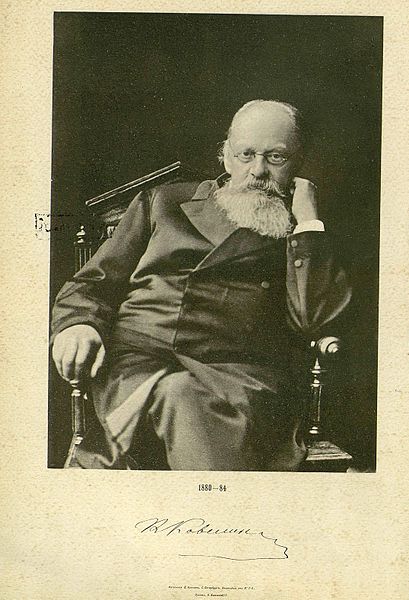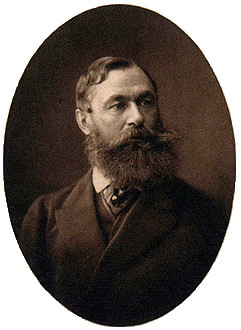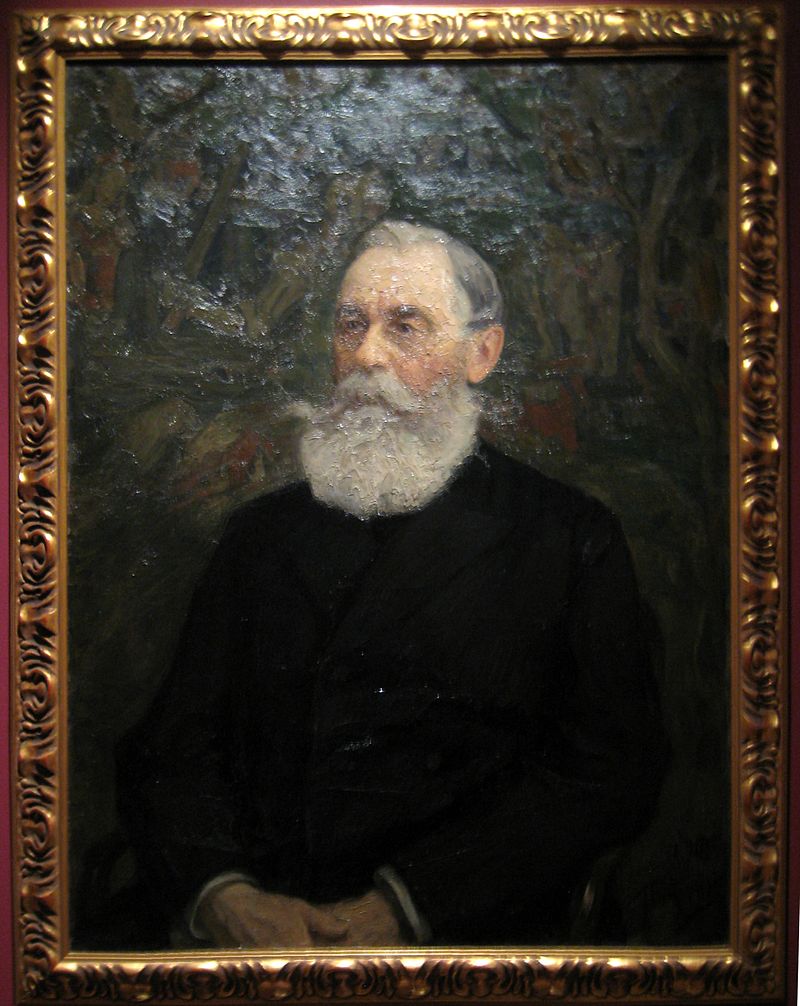<Back to Index>
- Historian, Jurist and Sociologist Konstantin Dmitrievich Kavelin, 1818
- Jurist and Political Philosopher Boris Nikolayevich Chicherin, 1828
PAGE SPONSOR

Konstantin Dmitrievich Kavelin (Константи́н Дми́триевич Каве́лин) (November 4, 1818, Saint Petersburg – May 5, 1885, Saint Petersburg) was a Russian historian, jurist and sociologist, sometimes called the chief architect of early Russian liberalism.
Born in Saint Petersburg into an old noble family, Kavelin graduated from the legal department of Moscow University and read law at the University of St Petersburg from 1839. Together with Timofey Granovsky and Alexander Herzen, he was one of the leading Westerners. In 1855, Herzen published Kavelin's celebrated proposal for the emancipation of serfs, which cost him the lucrative position of tsesarevich's tutor. During the 1860s, Kavelin was elected President of the Free Economic Society and gradually drifted to the right. In his Short Review of Russian History (1887) he seconded many Slavophile opinions and praised the state as the key institution of national history.
Some scholars believe that Kavelin was a prototype of Stiva Oblonski in Leo Tolstoy's novel Anna Karenina.


Boris Nikolayevich Chicherin (Russian: Бори́с Никола́евич Чиче́рин) (May 26, 1828 – February 3, 1904) was a Russian jurist and political philosopher, who worked out a theory that Russia needed a strong, authoritative government to persevere with liberal reforms. By the time of the Russian Revolution, Chicherin was probably the most reputable legal philosopher and historian in Russia.
Chicherin was born in Tambov, where his noble ancestors had been residing for many centuries. In 1849, he matriculated from the law department of Moscow University. On insistence of Dr. Timofey Granovsky, he continued to work in the university as a professor of Russian law. Together with his friend Konstantin Kavelin, he penned a comprehensive program of Russian liberalism which was published by Alexander Herzen in London.
Chicherin was a great champion of Alexander II's reforms of the 1860s, hailing them as "the best monument of Russian legislation". He published the Regional Administration of 17th century Russia in 1856, followed by the treatise On Popular Representation 10 years later. Chicherin's mature works, imbued with Hegel's thought as they were, advocated the constitutional monarchy as an ideal form of government for Russia.
In 1868, Chicherin resigned his position at the university as a protest against government repressions and settled in his estate near Tambov. It was here that he wrote several volumes of his bulky History of Political Theories. Its magnificent literary style was acclaimed by such masters as Ivan Turgenev and Leo Tolstoy.
Later, Chicherin returned to Moscow, where he was elected the city mayor in 1882. At that period, he supported Alexander's harsh measures in Poland and the tsar's struggle against radical revolutionaries. His speech at Alexander III's coronation in the Kremlin was interpreted as too liberal, however, and he was forced to resign. He spent his last years writing 4 volumes of memoirs and some books on chemistry, zoology and geometry.